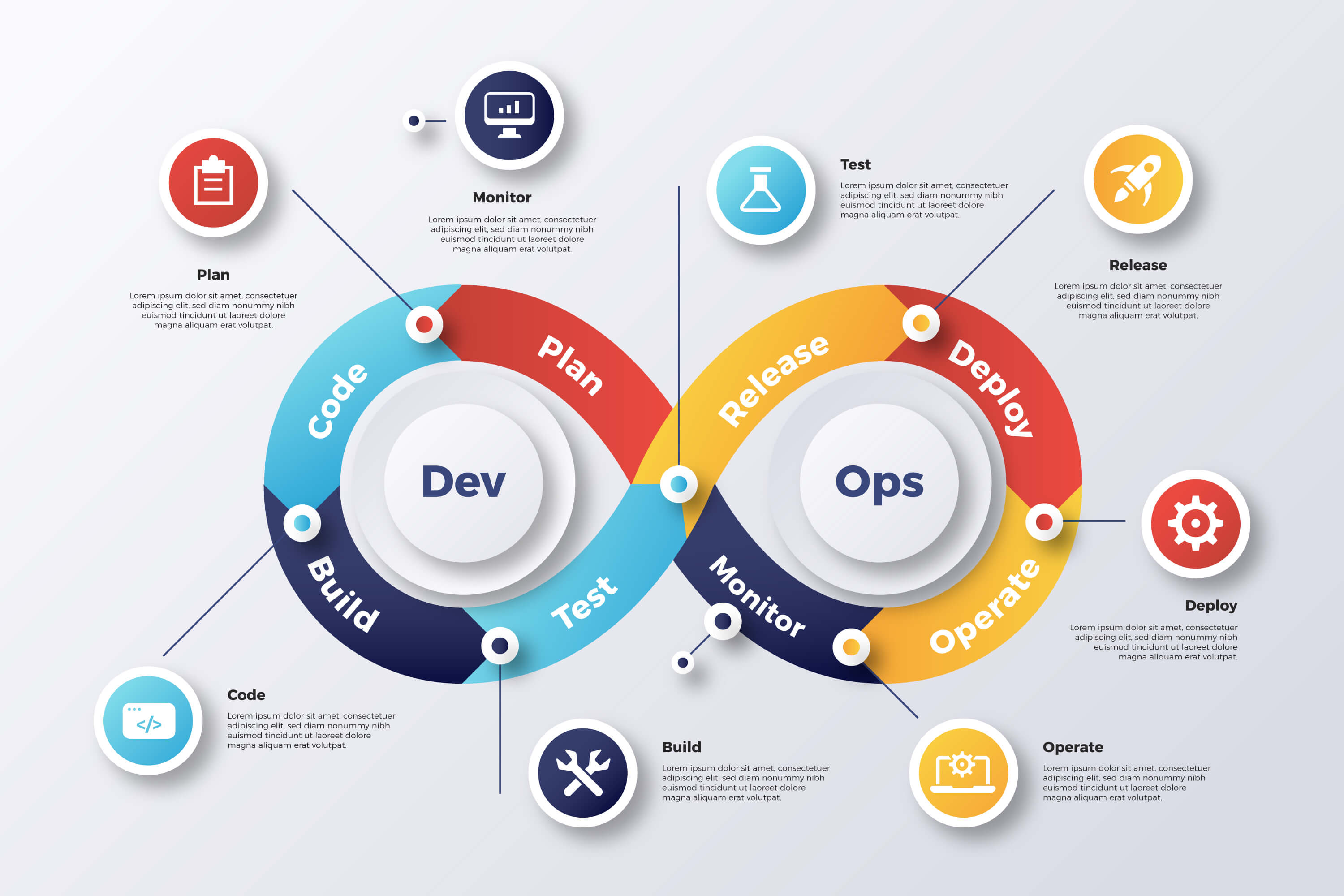info@gisqo.com
(+220) 7052792 | 3830277
In today's fast-paced digital landscape, businesses in The Gambia are increasingly turning to agile software development methodologies to stay competitive. One such methodology that has gained significant popularity is DevOps. DevOps brings together the development and operations teams, enabling seamless collaboration, faster releases, and improved quality. In this article, we will explore the benefits of embracing DevOps practices for agile software development in The Gambia and discuss how organizations can leverage this approach to drive innovation and deliver exceptional software solutions.
The Power of DevOps: Breaking Down the Silos
Breaking Down the Barriers
In traditional software development, development and operations teams often work in silos, leading to communication gaps, inefficiencies, and delays. DevOps breaks down these barriers by fostering collaboration and shared responsibilities. With DevOps, developers and operations teams collaborate throughout the entire software development lifecycle, from planning and coding to testing and deployment.
Continuous Integration and Continuous Deployment
One of the core tenets of DevOps is the concept of continuous integration and continuous deployment (CI/CD). This practice involves integrating code changes into a shared repository and automating the build, testing, and deployment processes. CI/CD enables organizations to release software updates more frequently, reducing time to market and allowing for rapid iteration based on user feedback.
Automation: Streamlining Development and Operations
Automation is a key aspect of DevOps that helps streamline development and operations processes. By automating repetitive tasks such as testing, deployment, and infrastructure provisioning, organizations can free up valuable time for developers and operations teams to focus on innovation and value-added activities. Automation also minimizes human error and improves overall software quality.
Adopting DevOps in The Gambia: Best Practices and Considerations
Building a DevOps Culture
To successfully embrace DevOps practices, organizations in The Gambia need to foster a culture of collaboration, transparency, and continuous improvement. It requires a mindset shift from traditional development and operations approaches. By promoting cross-functional collaboration and emphasizing shared goals, organizations can create an environment conducive to DevOps adoption.
Implementing Agile Development Methodologies
DevOps and agile methodologies go hand in hand. Agile methodologies, such as Scrum or Kanban, emphasize iterative development, frequent feedback, and adaptability. By combining DevOps with agile practices, organizations can achieve faster time to market, enhanced customer satisfaction, and increased flexibility to respond to changing market demands.
Infrastructure as Code: Automating Infrastructure Management
Infrastructure as Code (IaC) is a crucial aspect of DevOps. It involves defining infrastructure elements, such as servers, networks, and databases, in a declarative manner using code. This approach enables organizations to treat infrastructure as software, allowing for versioning, automated provisioning, and scalability. With IaC, organizations in The Gambia can rapidly provision and manage infrastructure resources, reducing manual effort and ensuring consistency.
Continuous Monitoring and Feedback Loops
DevOps promotes a culture of continuous monitoring and feedback loops. By leveraging monitoring tools and practices, organizations can gain insights into the performance, availability, and user experience of their software applications. This feedback loop helps identify bottlenecks, performance issues, and user pain points, enabling organizations to make data-driven decisions and prioritize improvements.
Security: Integrating Security into DevOps
Security should be an integral part of the DevOps process. By adopting a DevSecOps approach, organizations can embed security practices throughout the software development lifecycle. This includes implementing security checks and tests as part of the CI/CD pipeline, conducting regular security assessments, and promoting security awareness among team members. By integrating security into DevOps, organizations can ensure that their software solutions are robust and resilient to cyber threats.
Conclusion
Embracing DevOps practices for agile software development in The Gambia offers organizations the opportunity to accelerate their digital transformation journey. By breaking down silos, promoting collaboration, and leveraging automation, organizations can achieve faster time to market, improved software quality, and enhanced customer satisfaction. However, successful DevOps adoption requires a cultural shift, agile methodologies, infrastructure automation, continuous monitoring, and a focus on security. By embracing DevOps, organizations in The Gambia can unleash their full potential and thrive in the rapidly evolving digital landscape.
 June 12, 2023 - BY Admin
June 12, 2023 - BY Admin